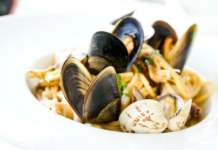Crab is a delicious and nutritious seafood choice enjoyed by people around the world. Known for its delicate, sweet flavor and tender texture, crab is a versatile ingredient that can be incorporated into a variety of dishes. But beyond its culinary appeal, crab offers an impressive array of health benefits that make it a great addition to your diet. From supporting heart health to boosting cognitive function, eating crab can positively impact overall well-being. This article looks at the many advantages of consuming crab.
Nutritional Profile of Crab
Crab is packed with essential nutrients, making it a powerhouse of health benefits. A typical serving of crab (about 3 ounces) contains:
- High-Quality Protein: Crab is an excellent source of lean protein essential for muscle repair and overall body function.
- Omega-3 Fatty Acids: These healthy fats help bring down inflammation, support brain function, and promote heart health.
- Vitamins and Minerals: Crab is rich in vitamin B12, selenium, zinc, and copper, all of which play crucial roles in maintaining health.
- Low Calories and Fat: Crab is low in calories and saturated fat compared to other protein sources, making it a great choice for those looking to maintain a healthy weight.
With such an impressive nutritional profile, it’s no wonder that crab is considered one of the healthiest seafood options available.
Health Benefits of Eating Crab
Supports Heart Health
One of the main health benefits of eating crab is its positive impact on heart health. The omega-3 fatty acids in crab meat help reduce bad cholesterol (LDL) levels while increasing good cholesterol (HDL). This balance helps lower the risk of heart disease and stroke. Additionally, crab contains selenium and copper, both of which act as antioxidants, protecting the heart from oxidative stress and inflammation.
Enhances Brain Function
Crab is a fantastic brain-boosting food. The combination of omega-3 fatty acids and vitamin B12 supports cognitive function, improves memory, and may help lessen the risk of neurodegenerative diseases such as Alzheimer’s. Regular consumption of crab can contribute to better focus, mental clarity, and overall brain health.
Strengthens the Immune System
Crab is loaded with zinc and selenium, two key minerals that enhance the immune system. Zinc plays a vital role in producing white blood cells, which help the body fight infections. Meanwhile, selenium is as a powerful antioxidant, protecting cells from damage and reducing inflammation. Eating crab regularly can help strengthen your immune defenses, making you more resilient to illnesses.
Promotes Bone and Joint Health
Crab is an excellent source of phosphorus, a mineral vital for maintaining strong bones and teeth. Combined with calcium, phosphorus supports bone density and reduces the risk of osteoporosis. Additionally, the anti-inflammatory properties of omega-3s found in crab can help alleviate joint pain and stiffness, making it a beneficial food for individuals with arthritis or other joint conditions.
Aids Muscle Growth and Recovery
Crab is an ideal protein source for those looking to build muscle or recover from intense physical activity. Protein is so important for muscle repair and development, and crab provides a lean yet effective source of this essential nutrient. Whether you’re an athlete or just someone looking to maintain muscle mass, incorporating crab into your diet can be highly beneficial.
Supports Eye Health
Crab contains essential nutrients such as vitamin A and omega-3 fatty acids, both of which contribute to eye health. These nutrients help protect against age-related macular degeneration, reduce the risk of cataracts, and support overall vision.
Improves Mood and Reduces Stress
The omega-3 fatty acids in crab have been linked to improved mental health. Studies suggest that omega-3s help reduce symptoms of depression and anxiety while promoting a balanced mood. Additionally, the presence of B vitamins in crab supports the nervous system, further contributing to mental well-being.
Stone Crab Claws: A Sustainable and Delicious Choice
Among the many varieties of crab, stone crab claws stand out as a particularly sustainable and delectable option. Found primarily in the warm waters of the Gulf of Mexico and the Atlantic Ocean, stone crabs are harvested uniquely to ensure their population remains stable.
Unlike other crabs that are caught and consumed whole, stone crabs are harvested by removing one claw before being returned to the ocean. Remarkably, stone crabs have the ability to regenerate their claws, making this a sustainable seafood choice. This method allows stone crabs to continue thriving while providing seafood lovers a delicious delicacy.
Stone crab claws are known for their sweet, firm, and succulent meat. They are typically served chilled with a tangy mustard sauce, creating a luxurious and satisfying dining experience. If you’re interested in trying premium-quality stone crabs it’s a good idea to look online for fresh, sustainably sourced seafood delivered straight to your door.
Culinary Versatility of Crab
Crab is a fantastic ingredient that lends itself to being prepared in numerous ways. Whether you prefer it steamed, grilled, or incorporated into dishes, there are countless ways to enjoy this flavorful seafood. Here are some popular ways to prepare crab:
- Crab Cakes: A delicious combination of crab meat, breadcrumbs, and seasonings, pan-fried to perfection.
- Crab Bisque: A creamy and flavorful soup that highlights the sweetness of crab meat.
- Steamed Crab: Whole crabs steamed with aromatic spices, served with melted butter or dipping sauces.
- Crab Salad: A refreshing mix of crab meat, fresh vegetables, and zesty dressing.
- Crab Pasta: A decadent dish featuring crab meat tossed with pasta, garlic, and a light cream or tomato sauce.
- Stone Crab Claws with Mustard Sauce: A classic dish that highlights the naturally sweet flavor of stone crab claws, served with a tangy dipping sauce.
How to Select and Store Crab
When purchasing crab, it’s important to choose fresh, high-quality seafood. Here are some tips to ensure you’re getting the best product:
- Look for Freshness: Fresh crab should have a mild, ocean-like scent. Avoid crabs with a strong, fishy odor.
- Choose Sustainable Sources: Opt for suppliers that prioritize sustainable fishing practices.
- Proper Storage: Keep fresh crab refrigerated and consume it within a day or two for optimal flavor. Cooked crab can be stored in an airtight container for up to three days.
Final Thoughts
Eating crab is not only a delicious culinary experience but also a health-boosting one. With its rich nutritional profile, crab supports heart and brain health, strengthens the immune system, promotes strong bones, and aids in muscle growth.
Whether you enjoy crab as part of a gourmet meal or a simple seafood dish, incorporating this nutritious shellfish into your diet is a choice you won’t regret. So go ahead—indulge in the taste of the sea while reaping the numerous health benefits crab has to offer!































